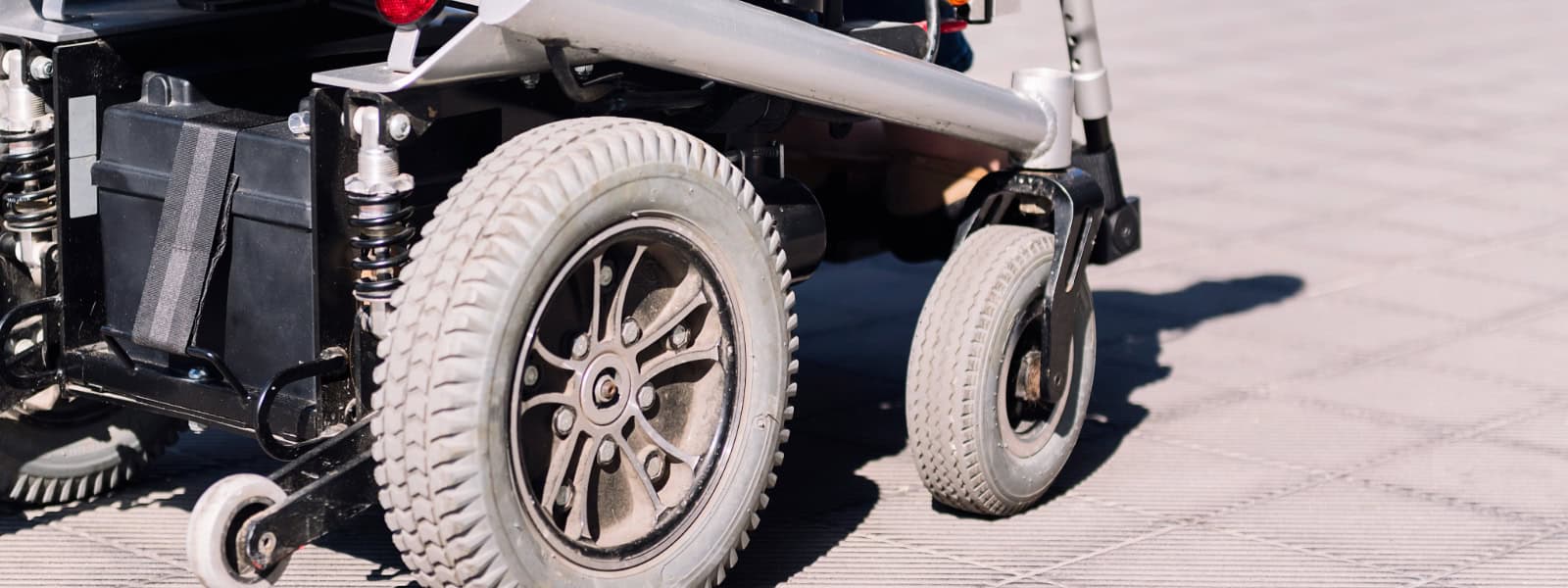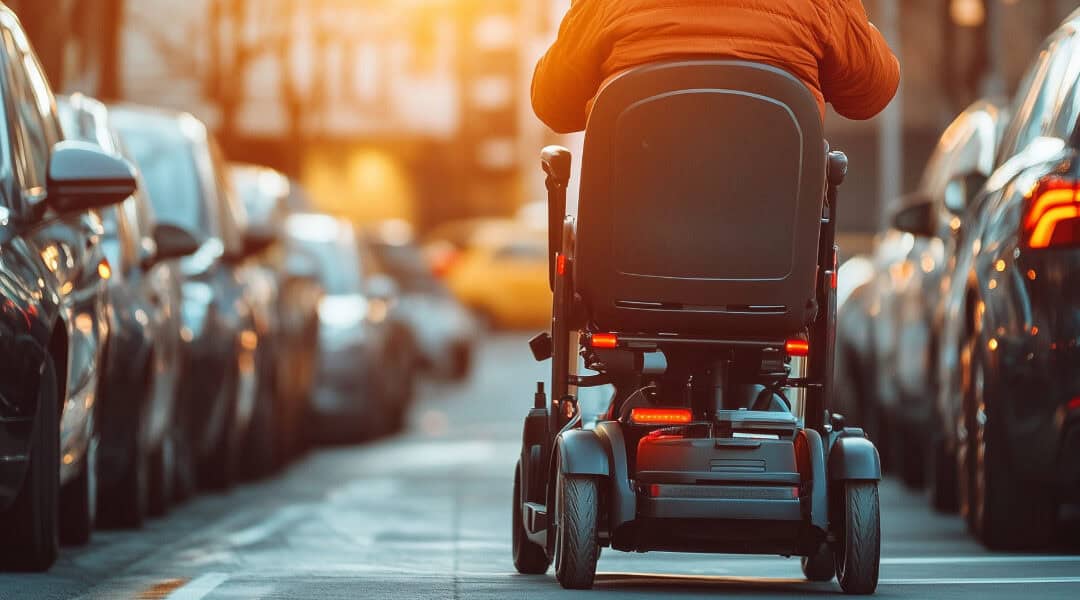Operating a motorized wheelchair while impaired can result in legal issues similar to those faced by drivers of traditional vehicles under the influence that offers independence for individuals with disabilities.
However, questions often arise about whether someone can get a DUI for using a wheelchair while under the influence of alcohol or drugs. Arizona’s DUI laws focus on the operation of motor vehicles, but public safety concerns still apply to impaired use of mobility aids.
This article explores the intersection of Arizona DUI laws, motorized wheelchairs, and public Intoxication can lead to serious consequences, including being charged for DUI. statutes to clarify the legal implications.
This article will cover the following subtopics:
- Are DUI Laws for Power Wheelchairs Discriminatory?
- How Arizona Law Defines Motorized Wheelchairs
- Can You Face DUI-Like Charges for Wheelchair Use?
- Potential Consequences of Operating a Wheelchair While Impaired include being charged with drunk driving.
- Legal Precedents Involving Wheelchair DUIs
- Safety Tips for Motorized Wheelchair Users
- Frequently Asked Questions
- Contact Shah Law Firm

Are DUI Laws for Power Wheelchairs Discriminatory?
How Arizona Defines DUI
Arizona Revised Statutes (ARS) Title 28-101 defines DUI as operating a motor vehicle while impaired by alcohol or drugs. A motor vehicle includes devices used for transportation on public roads but explicitly excludes motorized wheelchairs. This distinction prevents individuals using wheelchairs from being unfairly penalized under DUI statutes.
Why Wheelchairs Are Treated Differently
Critics argue that applying public intoxication laws to wheelchair users can result in discriminatory enforcement.
While DUI laws do not apply, individuals operating electric wheelchairs while impaired may still face charges such as public intoxication (ARS 13-2904) or endangerment (ARS 13-1201).
These laws aim to maintain public safety without disproportionately targeting individuals with disabilities.
Addressing Discrimination Concerns
Supporters of the current framework emphasize that wheelchair DUI may seem unfair but is necessary to ensure all road and pedestrian users remain safe. Public safety laws protect everyone while recognizing the unique nature of mobility devices.
However, awareness and consistent enforcement are important to avoiding perceptions of bias.
How Arizona Law Defines Motorized Wheelchairs
What Qualifies as a Motorized Wheelchair?
Under ARS Title 28-101, a motorized wheelchair is defined as a device designed for individuals with disabilities to travel on sidewalks or other pedestrian areas. These devices are distinct from motor vehicles and are not intended for public road use.
Legal Implications of the Definition
This classification is vital in determining how DUI laws apply. By explicitly excluding electric wheelchairs from the motor vehicle category, Arizona law ensures that users are not unfairly penalized under statutes designed for cars, motorcycles, and other vehicles.
However, individuals using motorized wheelchairs are still subject to pedestrian laws and could face penalties for behaviors like impaired operation or reckless use.
Protecting Users and the Public
Arizona law balances protecting individuals with disabilities and maintaining public safety. While impaired use of a motorized wheelchair does not result in a DUI charge, other statutes, such as ARS 13-2904, address disruptive or unsafe behavior.
Can You Face DUI-Like Charges for Wheelchair Use?
Public Intoxication
ARS 13-2904 outlines laws related to public intoxication and disruptive behavior in public spaces. While operating a vehicle under the influence, whether it be a car or a motorized wheelchair, one must be cautious. motorized wheelchair under the influence of alcohol or drugs does not constitute a DUI, it may lead to public intoxication charges if the operator endangers others or creates disturbances.
Disorderly Conduct and Endangerment
- Disorderly Conduct (ARS 13-2904): Covers actions that disrupt public peace, such as erratic operation of a wheelchair in a crowded pedestrian area.
- Endangerment (ARS 13-1201): Applies when impaired operation risks harm to others, such as swerving a wheelchair on the road or colliding with pedestrians.
Impact on Public Safety
These charges ensure that public safety remains a priority while acknowledging the unique circumstances of electric wheelchair Users of motorized wheelchairs should be aware of the legal limit for alcohol consumption to avoid penalties. Avoiding alcohol or impairing substances when using a wheelchair can help prevent these legal issues.

Potential Consequences of Operating a Wheelchair While Impaired
Legal Penalties
Though DUI laws do not apply, individuals using a motorized wheelchair while impaired may face serious consequences:
- Fines: Penalties for public intoxication or disorderly conduct can include monetary fines.
- Arrest: Severe cases of reckless behavior may result in arrest under ARS 13-2904.
- Community Service: Some violations may require offenders to perform community service.
Social and Personal Impacts
Being charged with public intoxication Endangerment can negatively impact one’s reputation, especially if charged for DUI. Additionally, these charges can complicate future interactions with law enforcement and other legal matters.
Importance of Responsible Use
Understanding Arizona’s laws and exercising caution while operating a motorized wheelchair can help avoid these consequences. Staying informed about local regulations and prioritizing public safety is key.
Legal Precedents Involving Wheelchair DUIs
Case Examples
- Georgia Incident: A Georgia man was arrested after operating his electric wheelchair while intoxicated in a grocery store parking lot. While he avoided DUI charges, he was cited for public intoxication.
- Pennsylvania Incident: A person in Pennsylvania was also charged with public intoxication for driving under the influence on a mobility scooter.
Lessons from Precedent
These cases show that while Arizona does not impose DUI charges for motorized wheelchair use, impaired operation can still lead to legal consequences. Staying within the bounds of ARS statutes is key for avoiding penalties related to operating a vehicle under the influence.
Safety Tips for Motorized Wheelchair Users
Avoiding Alcohol While Using a Wheelchair
To ensure safety and compliance with Arizona law:
- Plan Ahead: If you intend to drink, arrange for alternative transportation.
- Stay Sober: Avoid consuming alcohol or other impairing substances before using your wheelchair.
Staying Safe in Pedestrian Areas
Practical safety tips include:
- Stick to Sidewalks: Use pedestrian pathways to avoid traffic interactions.
- Maintain your wheelchair to ensure it is safe for use, especially if you plan to ride after consuming alcohol. Regularly check the motor and maintenance of wheels and other components is essential for safely operating your wheelchair.
- Stay Visible: Equip your motorized wheelchair with lights or reflectors, especially at night.

Frequently Asked Questions
Can you get a DUI in a wheelchair under ARS?
No, Arizona excludes motorized wheelchairs from the definition of motor vehicles, so DUI laws do not apply. However, users can face other charges like public intoxication or endangerment if impaired.
What happens if you are drunk and operating a motorized wheelchair?
Operating a motorized wheelchair while impaired by alcohol or drugs can lead to charges under ARS 13-2904 for disorderly conduct or ARS 13-1201 for endangerment. These charges focus on public safety rather than vehicle operation.
Are wheelchair DUI cases common in Arizona?
Wheelchair DUI may seem uncommon, but incidents involving impaired wheelchair use do occur. Legal consequences often depend on the situation, such as the presence of alcohol or whether the behavior endangered others.
Can you be arrested for operating a wheelchair while drunk?
Yes, you can be arrested if your behavior violates public safety laws, even though DUI laws do not apply. For example, being highly intoxicated in public while using a wheelchair could lead to an arrest for public intoxication under ARS 13-2904.
Are there exceptions for wheelchair use under Arizona DUI laws?
Yes, Arizona law explicitly excludes electric wheelchairs from the definition of motor vehicles under ARS Title 28. This ensures individuals with disabilities can use their mobility devices without fear of DUI charges.
What penalties could I face for impaired wheelchair operation?
Depending on the situation, penalties may include:
- Fines for public intoxication or disorderly conduct.
- Community service.
- Arrest and potential jail time if the behavior poses significant risks.
Can I lose access to my wheelchair if charged with public intoxication?
No, charges related to impaired wheelchair use do not typically result in the loss of your mobility device. However, multiple offenses could have broader consequences on your legal record.
How can Shah Law Firm assist with wheelchair-related charges?
Shah Law Firm specializes in defending against charges like public intoxication, disorderly conduct, and endangerment. If you’re facing legal trouble, our experienced attorneys will assess your case, explain ARS statutes, and fight to protect your rights.
Contact DUI Attorney Arja Shah
If you or a loved one is facing legal issues related to operating a motorized wheelchair while under the influence of alcohol or drugs, Phoenix DUI attorney Arja Shah offers compassionate, skilled representation to help navigate this legal process.
With a proven track record of defending over 3,000 clients and nearly 20 years of dedicated service in DUI law, Attorney Shah understands the complexities of Arizona’s laws regarding wheelchair operation and public intoxication. Facing charges such as public intoxication, endangerment, or disorderly conduct can be stressful, but having an experienced attorney on your side can make all the difference.
Arja Shah is committed to helping clients overcome the challenges associated with DUI-related offenses, including those involving mobility devices. Her extensive knowledge of Arizona DUI laws, public safety statutes, and legal defense strategies make her a strong advocate for those seeking to avoid criminal penalties. Whether you’re facing charges for impaired wheelchair operation or need guidance on Arizona’s laws, Attorney Shah is here to help.
Contact Arja Shah Law today at (602) 560-7408 for a free consultation and personalized defense strategy.

